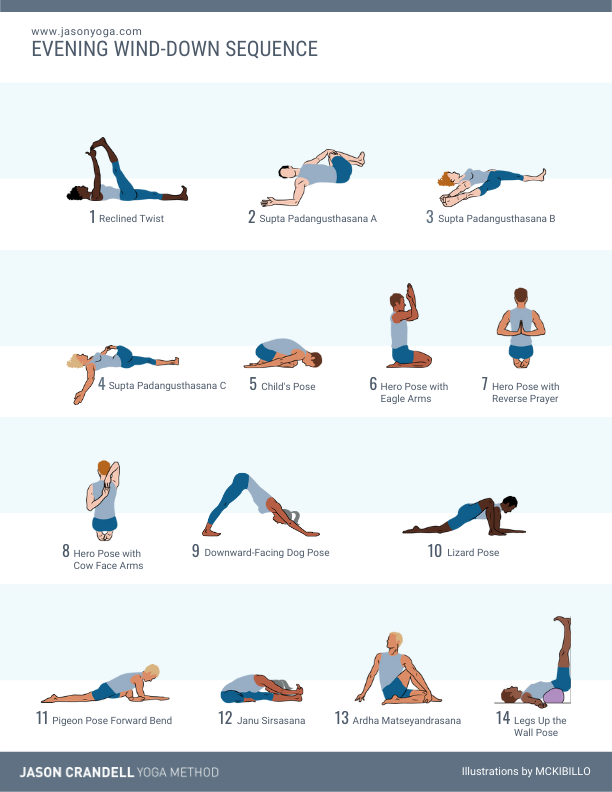
Yoga has many benefits, and yoga isn't just for athletes. Yoga can also be helpful for those with chronic illnesses like diabetes, high blood pressure, or high cholesterol. Yoga poses have many benefits, including improving cardiovascular health. Find out about the benefits of yoga for your heart. The following are just a few of the many benefits of yoga for your heart. Read on to learn how yoga can help you stay healthy and prevent heart disease.
Pranayama is one of Yoga’s most important components for heart health. This is a series breathing exercises that give immediate relaxation. Some of these include Anulom-Vilom, which cleanses the nerves in the body, and Alternate Nostril Breathing. Yoga for the Heart is best done under the guidance and supervision of a Yoga expert. You should also make sure that you eat a healthy diet.
Yoga is also known for its ability to lower stress levels. Many believe yoga can reduce or reverse heart disease. However, some people disagree. It doesn't matter if you prefer traditional yoga or another approach to the practice, the important thing is to follow the recommended sequence. The British Heart Foundation recommends that individuals attempt at least five yoga poses each day. It's the postures that relax the mind and the body that are best.

The second benefit of yoga is that it improves your heart health. It has a positive impact upon your cardiovascular health, as it reduces inflammation and improves circulation. This is why regular exercise is so important. As long as you can do a few minutes a day, the benefits will become apparent. Even if you don’t get to exercise every day, don’t despair. It's essential to a healthy heart.
Research has shown that yoga improves LVEF, lipids, and hyperglycemia. It also reduces the risk of developing high blood pressure or atrial fibrillation. Yoga is a great way to strengthen your heart. You are responsible for your heart health and you can improve it by doing yoga. However, you must be aware of the dangers associated with this exercise.
Yoga will allow you to reduce your stress levels. Lower levels of stress can lead to better cardiovascular health. Therefore, it is important to reduce it. Although yoga is a great way of relaxing and reducing stress, it is important to still exercise regularly and follow the instructions of a yoga instructor. If you do this, it will make it easier to keep up a regular yoga practice. Even if your practice is only for a few seconds each day it will make a big difference in your heart health.
Yoga can help improve your cardiovascular health. Yoga reduces your blood pressure. It also improves your heart endurance and efficiency. It can lower your blood pressure. If you want to avoid heart disease, practice yoga to maintain optimal health. It will improve your overall well-being. It's worth it! Do not wait to get started! It's amazing how quickly you will notice the benefits of yoga for your health.

The American Heart Association recommends that you do moderate to vigorous exercise five days per week for 30 minutes. Yoga will help improve your cardiovascular health. Additionally, yoga will make you more relaxed and reduce stress. Yoga can help lower blood pressure. Yoga practice will increase your energy. This is one benefit of having a healthy heart. Yoga can make you feel calmer, which will allow you live a more healthy life.
Yoga has many other benefits, including reducing stress, insomnia and depression. It can also relieve anxiety and depression. According to a 2004 study, regular yoga sessions can reduce the symptoms of mildly depressed people. Study participants who did yoga regularly reported a decrease in stress, which resulted to a better mood and less fatigue. They also decreased their stress hormone levels, which were a big benefit for the study. Although yoga's benefits are obvious, there are other aspects to your life that can benefit from it.
FAQ
What does milk do to men?
Next time you buy milk think about what you could do with it. It may be a good idea to reduce your coffee intake.
It has been proven that milk is beneficial for both children and adults. Milk provides children with nutrients such as vitamin D, calcium, potassium, phosphorous, and magnesium.
It also aids digestion, improves bone strength, and promotes weight gain. Milk products can help adults have better immunity systems and less illness.
Also, milk is rich in lactose so people who can't digest this sugar well can still reap the benefits of it without any stomach issues.
Try drinking more milk instead of soda or juice. The extra calcium and vitamin D found in milk can help strengthen your teeth and bones.
Plain low-fat milk can be used to make yogurt if you don’t like the taste. Yogurt, which is lower in calories but higher in protein, is a great option to milk.
Yogurt also has probiotics that aid digestion and increase immunity.
Take a glass warm milk before you go to bed if you are having trouble sleeping. Warm milk relaxes muscles and increases serotonin levels, helping you get a good night's rest.
What is a good 7-day workout schedule?
A seven day exercise program should include cardiovascular training (running or biking), strength exercises (using freeweights, weight machines) and one flexibility/core workout. Each activity should be performed at least once each week. The total time for each session should not exceed 45 minutes.
Cardiovascular Exercises: Running, biking, swimming
Your goal is to exercise at least 60 minutes each week. You can aim for 75 minutes a week for best results. Cardio exercise can improve blood flow and stimulate muscle development.
Strength Training
While cardio exercises target the heart and lungs, strength training targets the muscles and bones. Strength training helps you burn calories even while resting.
Flexibility and Core Workouts
Your whole body will be stronger if you have flexibility and core training. Both yoga and Pilates are excellent options.
How fast can my body be transformed?
Your mindset must be changed. The first step is to decide to change.
Once you decide that you want to change, it is time to set a minimum of 3 months' commitment to your fitness goals.
Then you need to find a program that fits into your lifestyle.
Realistic expectations are also important. If you are not ready to dedicate the time and effort to reach your goal, do not spend money on a gym.
Instead, take advantage of your free time to exercise outside.
If you spend an hour a day walking around the block, you'll burn enough calories to lose 1 lb per week.
Once you have a plan, you can start to organize your life according to this plan.
You should make sure you set aside time each morning to exercise and that you take breaks throughout your day to move.
When you achieve milestones, reward yourself. This could include buying clothes or accessories that reflect your success.
Statistics
- An estimated calorie range for moderately active adult males falls between 2,200 to 2,800 calories per day, depending on age. (eatright.org)
- Get free shipping and 25% off today. (healthline.com)
- By John Thompson Take a whopping 38% off a set of PowerBlock Pros. (menshealth.com)
- Candidates and applicants must pass all four tests at 70% (minimum level) to graduate from Basic Deputy U.S. Marshal (BDUSM) Training. (usmarshals.gov)
- According to the American Academy of Dermatology (AAD), men over 50 are at a heightened risk of developing it. (healthline.com)
External Links
How To
What should I have before I go to the gym?
For weight loss, you should eat fewer calories per day than you burn during exercise. Also, you must eat all the nutrients.
This includes protein as well carbohydrates, fats, and vitamins.
You can do this by eating smaller meals throughout your day instead of three large ones.
Working out if you are hungry can cause you to perform poorly.
Consider drinking water rather than sugary energy drinks. This will help you stay hydrated as well as energized.
However, make sure you are consuming enough fluids. Drinking too much water could dilute the electrolytes in your system.
Electrolytes are essential for the body's proper functioning.
You could also drink sports drinks if water is scarce. They can be rich in minerals like sodium, potassium or calcium.
This help replenishes lost electrolytes. They won't be able to replace the electrolytes you have lost through sweating.
A multivitamin pill can be taken if you worry about losing too much salt while exercising.
These supplements contain additional vitamin B6, which can help regulate your body's sodium levels.
You shouldn't depend on supplements if there isn't enough salt in the food or drinks you consume.
They aren't regulated by the Food and Drug Administration (FDA).
Some sports drinks may contain more sodium than others.
Some sports drinks could even contain artificial sweeteners. These could cause digestive problems.
If you are concerned about over-salting, you can use sea salt.
It contains fewer chemicals then table salt.
Sea salt also lacks iodine. This mineral is important for healthy thyroid function.